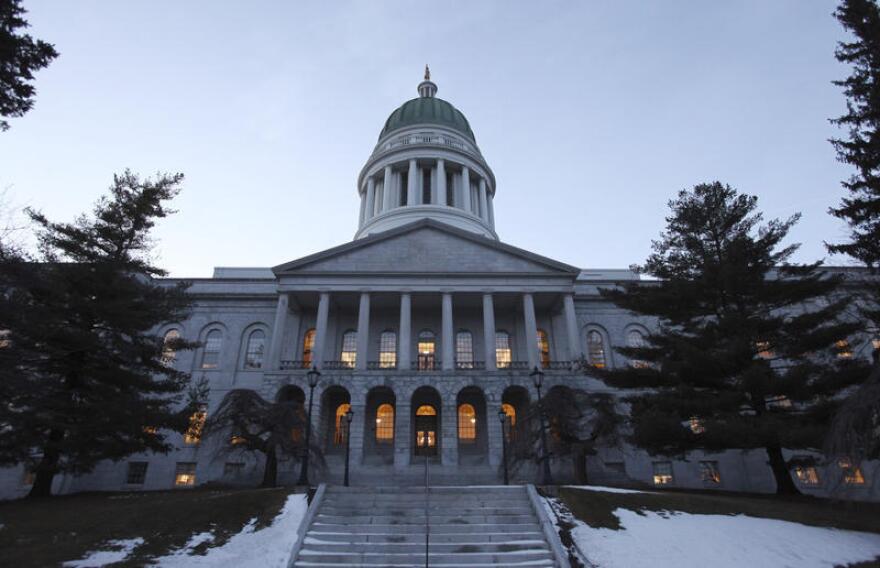There are hundreds of bills introduced the first session of the Maine legislature, but there's only one that must be passed: the two year state budget. Ed Morin spoke with Maine Public Senior Political correspondent Mal Leary about the budget.
EM: Mal, where is most of this almost $8 billion being spent?
ML: Well Ed, the biggest expense is for what I would call the basic operations of state government, paying all those workers that answer the phones, the snowplow drivers, law enforcement officers, the thousands of state workers, they provide services we all rely on during the year. For example, getting our drivers license renewed.
A lot of money, though, over a billion dollars a year, goes to support education, both at the local level and higher education facilities. So it's really not spent by state government, even though it's collected state government, it then goes back out to other units, such as local schools, or the university system.
Another big expense, in the budget is health care for the floor. We call it Maine Care, the federal government calls it Medicaid. It's mostly federal funds. But the state has to match those dollars. That matches roughly, two federal dollars for every state dollar. So Maine taxpayers are paying close to a billion dollars in this budget for health care.
So that's a lot of spending, you've outlined for existing programs, what some of the new spending?
Well Ed, you remember that old saying about a million here, a billion there, pretty soon you're talking real money? Well, there certainly are a lot of new areas where there's more spending, for example, we mentioned Medicaid, well, the voters expanded Medicaid a couple years ago, but it's finally taking effect, the cost is coming due, that's about $125 million in state money, but it will generate close to $700 billion in federal funds, because there's a better matching rate on an expansion than there is on Medicaid itself. So all that money's coming into the system.
Municipal revenue sharing goes up to 3% of the state income and sales taxes, then the amount of the homestead property tax exemption goes to $25,000 from the current $20,000. That's the program that reduces the value of your home. And therby reduces your local property tax bill. And there's another provision in there that makes more Mainers eligible for the property tax fairness credit on their income tax.
So we have a lot of programs here that are also aimed at trying to make the taxes more fair and balanced in a state by taking some of the revenue coming in from the income tax and the sales tax, and using it to address the high property taxes in many communities.
So it sounds like what you've talked about at this point is expanded spending on things that have been around for a while. What about new initiatives? Is there some new spending in all of the budget?
Well, you're right, most of what's being called new spending is really spending on existing programs in state government. But there are some truly new areas. For example, there's a $4 million appropriation for broadband expansion to serve areas of the state that are being underserved. That's new, there's been very little done for broadband expansion with state money, there's been a little federal money for it. Besides that appropriation, there's a bond issue that is kicking around it, if the voters approve it, that will go for broadband.
There's also several renewable energy initiatives that invest in new programs to help homeowners, businesses, get more efficient energy systems, whether we're talking heating and cooling through heat pumps, or more efficient motors, for example, in a business for their electricity consumption.
So you've talked about a lot of spending, a lot of money almost $8 billion in this state budget. Does that pretty much cover all spending by state government?
Well it covers most of it, for sure, but there's also a whole bunch of individual bills that are on what the legislature calls its "appropriations table." Literally, there's over $800 million worth of bills, but there's only money that's been set aside by legislative leaders to pay for about $6 billion of funding. So these last days of the session one of the big topics that lawmakers are dealing with is: which one of those, literally scores of bills, will actually be funded and how much within that cap of $6 billion.





